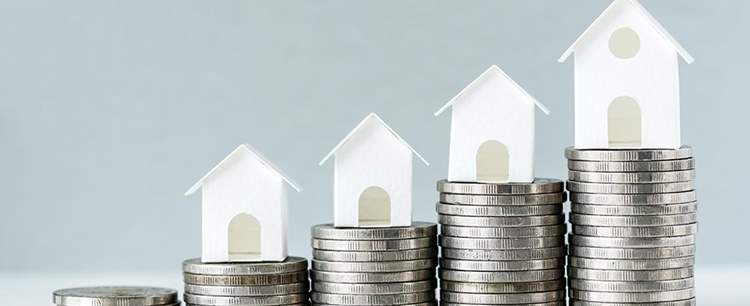It seems that the housing market’s recovery from the recent lockdown during the pandemic has been much faster than many imagined.
House prices have climbed to new records, households are borrowing to spend more, savings are stabilising, and mortgage approvals are soaring. These are all signs that the property market is bouncing back with renewed vitality.
House Prices
House prices rose by a full two percentage points during August 2020, recorded the BBC on the 2nd of September. That represents the most significant monthly increase in more than 16 years, according to reports, and takes the average house price to an all-time high of £224,123.
With house prices in September 3.7% higher than they were even in August, any losses on the house price index incurred during the stagnant months of lockdown have effectively been reversed, said a story in the Mail Online on the 16th of September.
Despite a climate of economic uncertainty, demand is currently up 34% on this time a year ago, revealed the newspaper. It suggested this is driven by the release of pent up demand as the market emerges from lockdown and also buyers’ reassessing their housing needs in the light of the past six months or so.
A revitalised housing market is also enjoying something of a honeymoon period thanks to the stamp duty holiday announced by the Chancellor on the 8th of July and which will last until the end of next March.
Activity in the market means that it is now taking less time to sell a house. The Daily Mail reports a decrease from 39 days to 27 days from first advertising to completing the transaction – and the most popular three-bedroom homes taking just 24 days to sell.
Buyers and sellers may be making hay while the sun shines during this honeymoon period, however, since darker clouds are on the horizon once again when the rising tide of unemployment hits during this Autumn. As a result, the Office for Budget Responsibility is currently forecasting a 3.8% fall in average house prices in 2021, before a further recovery and an increase of 9.6% in 2022.
Borrowing And Saving
Consumer borrowing and saving patterns also underline a current wave of optimism and buoyancy in the economy.
Credit data suggests that consumers are once again in the mood for big-ticket purchases, argued the Financial Times in an article on the 1st of September. This revealed that borrowing on credit increased by a total of £1.2 billion during July – the biggest increase since the previous four months when consumers were largely preoccupied with repaying outstanding credit.
The flip-side of the coin relates to consumer savings. During the height of the pandemic – between March and May – consumers were increasing their savings by an accumulated total of some £19.1 billion a month. By June, that figure had fallen to £11.7 billion and a further drop to £7.0 billion in July – closing in on the typical average savings increase of £5 billion a month pre-pandemic.
Mortgage Lending
There would not be such a resurgence in house transactions, of course, without the mortgage lending to go with it.
New mortgage approvals rocketed by 40% in July, reported the financial pages of the Daily Mail on the 1st of September. This took the number of successful mortgage applications up to a total of 66,300 – only 10% fewer than the 73,700 approvals in pre-pandemic February, but still broadly in line with the typical annual average number of approvals.
The upsurge has overtaken the 54,800 predicted by several economists, reported the Financial Times on the 1st of September and the rising number of mortgage approvals contrasts sharply with the slump to just 9,300 – a record low – at the height of the lockdown in May.
What is more, the official mortgage approval figures released by the Bank of England came before the effects of the stamp duty holiday announced on the 8th of that month could make their impact. Now that buyers are encouraged to take advantage of the tax holiday – and to act fast before it expires at the end of March 2021– mortgage applications and approvals can be expected to climb further still.
As with house prices, though, the current surge in optimism needs to be tempered by a more cautious approach to the future, when the current job supporting furlough scheme draws to a close and unemployment begins to rise. The unemployed, of course, are in no position to make new mortgage applications – still less to be met with approvals.






